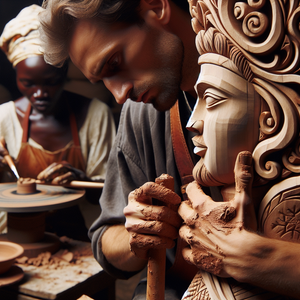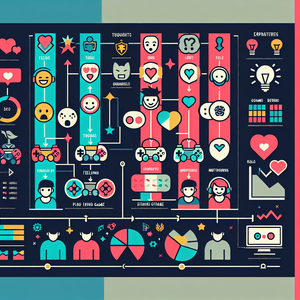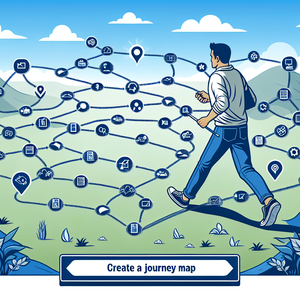The Art of Game Design: How Epic Games Cultivates Creative Talent

At the heart of Epic Games’ success in fostering creativity is its collaborative workspace and culture. The company has designed an environment that promotes teamwork among diverse teams. Open office layouts, communal spaces, and frequent team-building activities encourage the free exchange of ideas, breaking down silos that might stifle creativity. A prime example of this is the company’s regular "Game Jams," where teams dedicate intense periods to brainstorm and develop new game concepts. These events allow for experimentation without the pressures of immediate commercial success, cultivating a culture of risk-taking and bold innovation.
Mentorship Programs
Epic Games recognizes that the freshest perspectives often come from new talent. To harness this potential, the company invests significantly in mentorship programs that pair seasoned game designers with newcomers. This initiative not only facilitates knowledge transfer but also fosters personal and professional growth. Mentors provide insights into the complexities of game design, covering both creative and technical aspects. Feedback from participants has indicated that these relationships enhance skill development and strengthen community within the workplace.
Workshops and Training Sessions
Continuous learning is a cornerstone of Epic Games’ approach to talent cultivation. The company regularly organizes workshops and training sessions that span a broad spectrum of topics—from technical skills like coding and 3D modeling to soft skills such as storytelling and teamwork. For instance, workshops on the latest advancements in virtual reality enable designers to explore new tools and techniques that can be directly applied to their projects. By fostering a culture of lifelong learning, Epic ensures its employees remain at the forefront of industry trends.
Encouraging Personal Projects
Understanding that passion projects can lead to significant innovation, Epic Games encourages its employees to pursue personal game design projects. The company provides the necessary resources and support for these initiatives, recognizing that individual creativity can yield breakthroughs that benefit the entire organization. Several successful features within Epic’s games have emerged from employee-led projects, illustrating how personal endeavors can directly influence and enhance the company’s offerings.
Diversity in Design
Epic Games firmly believes that a diverse workforce leads to richer, more varied game design. The company actively seeks to hire individuals from different backgrounds, cultures, and experiences, fostering an environment where unique perspectives enhance creativity. This commitment to diversity is evident in the games they produce, which frequently delve into a wide array of themes and narratives that resonate with players from all walks of life, ultimately creating more inclusive gaming experiences.
Supporting Examples and Evidence
A significant example of Epic Games' dedication to cultivating creative talent is its Unreal Fellowship program. This initiative provides immersive training in Unreal Engine, allowing participants to work on real-world projects under the guidance of industry veterans. Feedback from past fellows emphasizes the program’s transformative impact on their skillsets and confidence as creators, offering a compelling case for the effectiveness of such training initiatives. Moreover, the phenomenal success of Fortnite can be partially attributed to the innovative culture at Epic Games. The game’s continual updates and community-driven events are a testament to a design philosophy that prioritizes player engagement and creative input, showcasing how the company's talent cultivation strategies translate into successful product development.
Epic Games stands as a beacon of creativity in the gaming industry, distinguished not only by its groundbreaking products but also by its commitment to cultivating talent. Through collaborative workspaces, mentorship programs, workshops, support for personal projects, and a focus on diversity, the company has built an environment where creativity can flourish. As the gaming landscape continues to evolve, the initiatives at Epic Games serve as a model for other companies aspiring to foster innovation and nurture the next generation of game designers. With organizations like Epic leading the charge, the future of gaming is not only promising but also poised to deliver incredible stories, experiences, and worlds waiting to be explored.
Game Designer (Level Design Specialist)
Epic Games, Ubisoft, Bethesda Softworks
Core Responsibilities
Create engaging and immersive game levels that enhance player experience and align with the overall game narrative.
Collaborate with artists and programmers to ensure level designs are technically feasible and visually appealing.
Utilize feedback from playtesting to iterate on level designs, improving gameplay mechanics and pacing.
Required Skills
Proficiency in level design software such as Unreal Engine or Unity.
Strong understanding of game mechanics, storytelling, and player psychology.
Experience in scripting and basic programming can be beneficial.
Technical Artist
Epic Games, Respawn Entertainment, Naughty Dog
Core Responsibilities
Bridge the gap between art and programming, ensuring that art assets are optimized for performance without sacrificing quality.
Develop and maintain tools and workflows to improve efficiency in the art pipeline.
Collaborate with both artists and engineers to solve technical issues related to art implementation.
Required Skills
Solid understanding of 3D modeling and animation software (e.g., Maya, Blender).
Proficiency in shader development and experience with scripting languages like Python or MEL.
Strong problem-solving skills and the ability to communicate effectively across disciplines.
User Experience (UX) Researcher
Epic Games, Blizzard Entertainment, Riot Games
Core Responsibilities
Conduct user testing and research to understand player needs and behaviors, informing design decisions.
Analyze data and feedback to craft actionable insights that improve game usability and enjoyment.
Collaborate with designers and developers to create user-centered game experiences.
Required Skills
Experience with user research methods (e.g., interviews, surveys, usability testing).
Strong analytical skills with the ability to interpret qualitative and quantitative data.
Familiarity with design principles and experience in the gaming industry is a plus.
Narrative Designer
Epic Games, Telltale Games, BioWare
Core Responsibilities
Develop compelling storylines, character arcs, and dialogue that enhance player engagement.
Collaborate with game designers to integrate narrative elements into gameplay mechanics.
Review and edit narrative content throughout the development process to ensure consistency and quality.
Required Skills
Strong writing skills with a portfolio showcasing narrative work in games or interactive media.
Understanding of game design principles and how storytelling interacts with gameplay.
Ability to work collaboratively within a multidisciplinary team.
Sound Designer
Epic Games, Insomniac Games, Bungie
Core Responsibilities
Create and implement sound effects, dialogue, and ambient sounds that enhance the gaming experience.
Collaborate with the development team to ensure audio aligns with the game's overall vision and narrative.
Conduct field recordings and manage audio libraries to maintain high-quality sound assets.
Required Skills
Proficiency in audio editing software such as Pro Tools or Adobe Audition.
Understanding of sound design principles and experience in creating immersive audio experiences.
Strong communication skills and the ability to work under tight deadlines.


